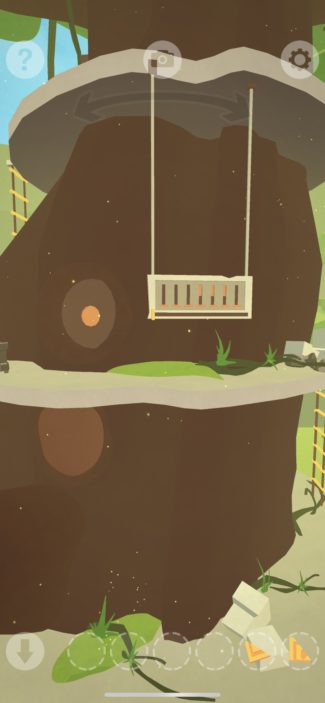Bastion
LQ: 9.15
Recommended Age: 10+
Skills Used: Planning, Working Memory, Mathematics, Reading

The Faraway Series is a series of mystery puzzle app games. The player is an adventurer exploring the ruins of ancient temples. The temples are set in a different environment (such as jungle or snow) for each version of the app. They have a wide variety of puzzles and challenges available. They range from pulling a lever to open a door to having to hunt for clues to find a code that you have to enter onto a button pad. The further into the app you go, the tougher the puzzles become.
Each level also has three notes to find. Two of them are hidden in places like pots or under rocks or even right out in the open. One is a secret note that has to be found by putting together a clue from the final key (which lets you exit the level) and the rest of that level’s temple and puzzles. There are also achievements that can be earned in a variety of ways.
All the games are available for both Android and iOS, as of the writing of this playbook. You can select the link for your operating system and chosen version of the game on their website. Each game gives the player nine free levels and has ads at the end of each of the free levels. There are also purchases available for hints, no ads, and the remaining levels in each game. The ESRB rated the Faraway Series games E for Everyone and LW4K stands by this rating.
The Faraway Series helps kids practice and improve the following skills:
 Planning
PlanningDeveloping a systematic approach for setting and achieving goals.
Playing these games will work two planning skills: short-term planning and problem solving. Short-term planning is used for every puzzle. The player has to plan out several steps in advance, but only the steps needed for one puzzle at a time. This means that they aren't ever planning more than five or ten minutes worth of game play at a time. Problem solving is used every step of every puzzle in every level. Each puzzle is a problem the player has to solve, or they can't move on to the next problem. If they don't solve all the problems in that level, they won't unlock the next level. Even finding all three notes in a level requires the player to exercise their problem solving skills. If the player isn't planning, they won't be successful at this game.
Recalling and retaining information in our minds while working.
These games also do an excellent job of stretching a player's working memory. A lot of puzzles include clues from all over a level. The player has to find the clues, hold them in their minds until they have found them all, and then go back to the puzzle and follow the implied directions of the puzzle's answer. If they can't do all of these things, sometimes holding something in their mind for several minutes, then they won't be able to solve the puzzle. The player also has to be building a visual map--or memory--of the level. If they don't know where all the rooms and clues and pieces of the puzzles are located, if they do forget what they were doing, they won't be able to refresh their memory. In other words, if the player doesn't use their memory to build a map and remember clues, they won't be able to solve puzzles and advance to new levels.
All membership plans come with full access to our entire suite of tools learning guides, and resources. Here are a few of the ones we think you’ll like the most: